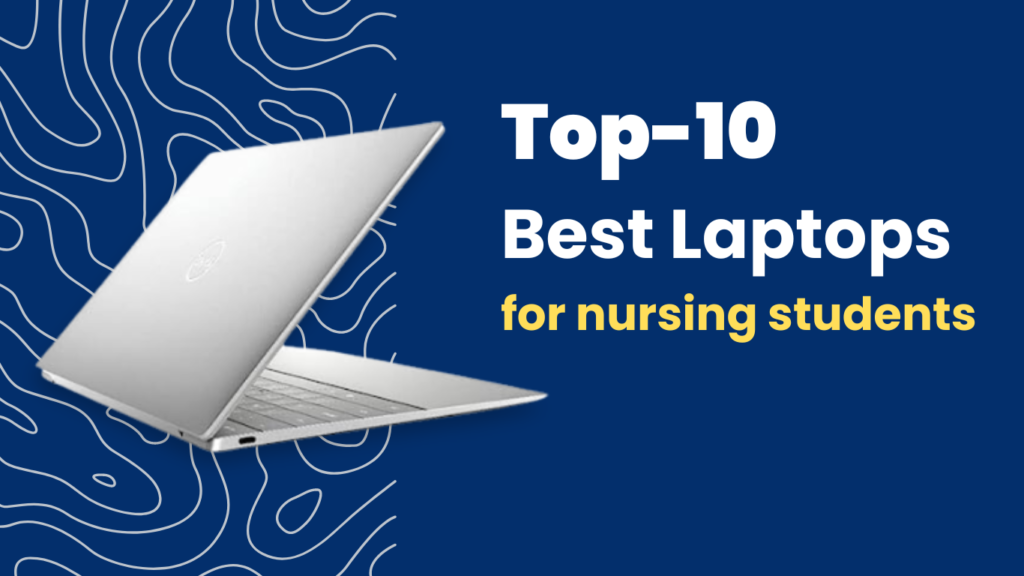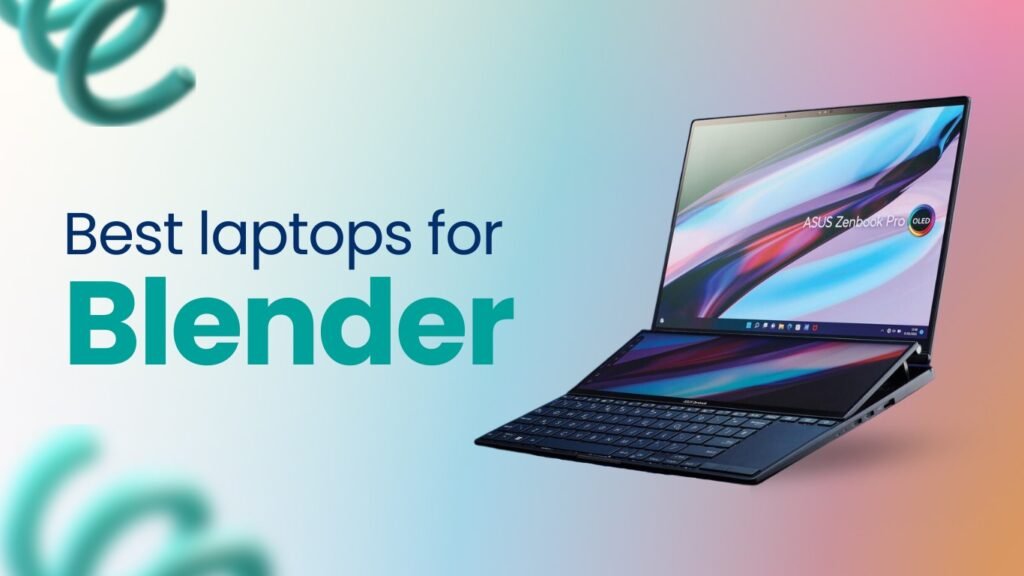How much storage do I need on my laptop?
- Introduction-How much storage do I need on my laptop?
- Understanding Storage Needs
- Assessing Your Usage
- Types of Storage
- Factors Affecting Storage Requirements
- Operating System and Software
- Media Files
- Gaming
- Data Storage and Backups
- Recommended Storage Capacities
- Basic Usage
- Moderate Usage
- Power Users
- Tips for Managing Storage Space
- 5 best laptops with the best memory
- FAQs
- How do I check my current storage capacity?
- Can I upgrade the storage capacity of my laptop?
- Is it better to have a larger SSD or a smaller SSD with an external hard drive?
- How can I free up space on my laptop?
- Conclusion
How much storage do I need on my laptop?
Unlock the Secrets of Optimal Laptop Storage: How Much Storage Do You Really Need? Plus, Explore a World of Laptop Expertise as We Dive Deep Into All Things Laptop-Related!
How Much Storage Do I Need on My Laptop: A Comprehensive Guide
In today’s digital age, laptops have become indispensable tools for work, entertainment, and communication. When purchasing a new laptop or evaluating your storage needs, it’s crucial to consider how much storage capacity you require. In this article, we will delve into the factors influencing your storage needs and provide recommendations for different user types. So, let’s explore the question: How much storage do I need on my laptop?
Introduction
Laptops are the hub for storing all your files, documents, applications, and multimedia content. Determining the appropriate storage capacity is essential to ensure smooth performance and prevent running out of space at critical moments. To make an informed decision, it’s important to understand your usage patterns, the available storage types, and the factors that affect your storage requirements.
Understanding Storage Needs Assessing Your Usage To accurately determine the storage capacity you need on your laptop, it’s crucial to assess your usage patterns.
Consider the following questions:
- How do you primarily use your laptop? Is it for basic tasks like web browsing, email, and word processing, or do you engage in more demanding activities like video editing or gaming?
- Do you store a large number of multimedia files, such as photos, videos, or music?
- Are you a frequent downloader of movies, TV shows, or other large files?
- Do you rely heavily on cloud storage or external drives for additional file storage?
By understanding your usage patterns, you can gain insights into the types of files you handle and estimate the amount of storage space required. How Much Storage Do I Need on My Laptop is a common question that arises during this assessment process. It’s important to consider both present and future needs when determining the appropriate storage capacity.
When considering “How Much Storage Do I Need on My Laptop,” it’s important to factor in the size and frequency of the files you work with. This will help determine whether you need a smaller storage capacity, such as 256GB, or a larger one, like 1TB, to accommodate your needs. Additionally, keep in mind that operating systems and software applications also take up space on your laptop’s storage. If you plan to install numerous applications or work with large software files, you may need extra storage to accommodate those as well.
Another aspect to consider is future-proofing your laptop. If you anticipate your storage needs to increase over time, it’s wise to opt for a higher storage capacity upfront to avoid the hassle of upgrading later. It’s also worth noting that some laptops allow for storage upgrades, either by replacing the internal storage drive or adding external storage solutions like USB drives or external hard drives.
In conclusion, determining how much storage you need on your laptop requires assessing your usage patterns, the types of files you work with, and considering future needs. By doing so, you can make an informed decision and ensure your laptop has sufficient storage capacity to meet your requirements. So, remember to ask yourself, “How Much Storage Do I Need on My Laptop,” and consider these factors when making your decision.
Types of Storage
Laptops typically offer two types of storage: hard disk drives (HDDs) and solid-state drives (SSDs). HDDs provide more storage capacity at a lower cost, but they are slower in terms of data transfer speeds. SSDs, on the other hand, offer faster performance and are becoming increasingly popular due to their speed and reliability. However, they come at a higher price per gigabyte. It’s essential to consider the pros and cons of each type and choose the one that aligns with your needs and budget. When determining “How Much Storage Do I Need on My Laptop,” you should also take into account the type of storage technology you prefer to have.
Factors Affecting Storage Requirements
Several factors influence the amount of storage you need on your laptop. By understanding these factors, you can make a more accurate assessment of your storage requirements. Let’s explore them in detail:
Operating System and Software
The operating system and software you use on your laptop play a significant role in storage consumption. Operating systems like Windows or macOS require a certain amount of space to function optimally. Additionally, resource-intensive software applications may require more storage to store temporary files or cache. It’s essential to consider the storage requirements of your operating system and the software you use regularly.
Media Files to know how much storage do I need for my laptop?
If you frequently capture photos or videos, the size of these files can quickly add up. High-resolution photos, 4K videos, and large audio files can consume substantial storage space. Similarly, if you are an avid consumer of media content, such as movies or music, you must account for the storage space required to store these files. Assess your media consumption habits and the type of content you create or download to estimate the storage capacity needed.
Gaming
Gaming enthusiasts often require ample storage space on their laptops. Modern games can be quite large, with some titles exceeding 100 gigabytes in size. If you enjoy playing graphically intensive games or have a large collection of games, you’ll need to allocate enough storage for your gaming needs. Consider the size of the games you play or intend to play and account for their storage requirements. to have best gaming experience you must know that how much storage do i need for my laptop?
Data Storage and Backups
Consider whether you need additional storage for data storage and backups. If you work with large files or require frequent backups of your important documents, having extra storage capacity is essential. This ensures you have enough space to store your data securely and create backups without constantly worrying about running out of room. Evaluate your data storage needs and factor in the space required for backups to determine your storage requirements accurately.
Recommended Storage Capacities-How much storage do i need on my laptop?
Based on your usage patterns and the factors mentioned above, here are some recommended storage capacities for different user types:
Basic Usage to your answer of how much storage do i need on my laptop?
For users engaged in basic tasks like web browsing, email, and word processing, a laptop with 128GB to 256GB of storage should suffice. This capacity allows for the operating system, essential applications, and a moderate amount of personal files. It provides enough space for day-to-day activities without running into storage constraints.
Moderate Usage
If you engage in more demanding activities like photo and video editing or work with large files, consider a laptop with 512GB to 1TB of storage. This range provides ample space for your files, applications, and some multimedia content. It accommodates the storage requirements of moderate users who need additional space for creative projects or handling larger files.
Power Users
Power users who require extensive storage for gaming, media production, or data-intensive work should opt for laptops with 1TB or more of storage. This ensures you have enough room for your software, games, media files, and data storage needs. Power users often deal with large files, extensive media libraries, and resource-intensive applications. Having a higher storage capacity allows for smooth operations and prevents storage limitations.
Tips for Managing Storage Space
Regardless of the storage capacity you choose, efficient management of your laptop’s storage is crucial. Here are some tips to help you optimize your storage space:
- Regularly Declutter and Organize: Take the time to declutter your files and delete unnecessary documents, duplicates, or old files. Organize your files into well-structured folders to easily locate and manage them.
- Utilize Cloud Storage Services: Offload less frequently accessed files to cloud storage services like Google Drive, Dropbox, or Microsoft OneDrive. This helps free up local storage space while providing remote access to your files.
- Leverage External Storage: Consider using external hard drives or portable SSDs for storing large media files or archives. These devices offer additional storage capacity and can be easily connected to your laptop when needed.
- Use Disk Cleanup or Optimization Tools: Take advantage of disk cleanup or optimization tools provided by your operating system. These tools can help remove temporary files, clear the cache, and free up storage space.
- Be Mindful of Software Installations: Install only the necessary software and regularly uninstall unused applications. This helps prevent the accumulation of unnecessary files and saves storage space.
5 best laptops to answer the question How much storage do I need on my laptop
In today’s fast-paced digital age, having a laptop with ample storage is crucial for handling large files, running resource-intensive software, and storing valuable data. How much storage do I need on my laptop? This question arises in the minds of many users. Whether you’re a professional, a creative individual, or a gaming enthusiast, finding the right laptop with excellent storage options can greatly enhance your computing experience. To make your search easier, we have compiled a list of the top 5 laptops with impressive storage that are readily available on Amazon. Let’s dive into the world of cutting-edge technology and explore these remarkable devices.
Dell XPS 15 – The Epitome of Performance:
When it comes to performance, the Dell XPS 15 stands tall among its competitors. Its sleek design is matched by its powerful specifications, and its storage options are no exception. With solid-state drives (SSDs) available in capacities up to 1TB, the XPS 15 provides ample room for your files, software, and multimedia projects. Whether you’re a professional video editor or a digital artist, this laptop’s storage capabilities will meet your needs with ease.
HP Spectre x360 – Versatility at Its Finest:
The HP Spectre x360 is renowned for its versatility, and its storage options are no different. This laptop offers SSDs with capacities up to 2TB, providing you with an abundance of space for your documents, photos, and videos. How much storage do I need on my laptop? With the Spectre x360, you can comfortably store extensive media libraries, high-resolution projects, and personal files without worrying about running out of space. Its convertible design and powerful performance make it an ideal choice for individuals seeking a versatile laptop that doesn’t compromise on storage capacity.
ASUS ROG Zephyrus G14 – Gaming Powerhouse:
For gaming enthusiasts who demand both power and storage, the ASUS ROG Zephyrus G14 is a force to be reckoned with. This gaming laptop is equipped with AMD Ryzen processors and NVIDIA GeForce graphics, delivering a remarkable gaming experience. In terms of storage, it offers SSD options ranging from 512GB to 1TB. How much storage do I need on my laptop for gaming? With the Zephyrus G14, you’ll have enough space to store your extensive game library, game saves, and other gaming-related files, ensuring lightning-fast loading times for your favourite games and applications.
Lenovo ThinkPad X1 Carbon – Business Professional’s Companion:
The Lenovo ThinkPad X1 Carbon is designed to cater to the needs of business professionals. Alongside its lightweight and durable build, it provides a range of storage configurations to suit your requirements. How much storage do I need on my laptop for business purposes? With SSD options up to 2TB, the ThinkPad X1 Carbon offers ample space for your important files, presentations, and confidential data. Whether you’re working with large datasets or storing sensitive client information, this laptop ensures you have the storage capacity to meet your professional needs.
Apple MacBook Pro – A Creative Powerhouse:
No list of top laptops would be complete without mentioning the Apple MacBook Pro. Renowned for its sleek aesthetics and impressive performance, this laptop is a favourite among creative professionals. How much storage do I need on my laptop for creative work? With storage options ranging from 512GB to a whopping 8TB SSD, the MacBook Pro provides artists, designers, and content creators with ample space for their extensive media libraries, high-resolution projects, and resource-hungry software. Capture your creativity without worrying about storage limitations and get the best answer to know that how much storage do i need for my laptop?
FAQs
Here are some frequently asked questions about laptop storage:
How much storage do I need on my laptop?
- How do I check my current storage capacity?
To check your current storage capacity on Windows, open File Explorer, right-click on the main drive (usually C:), and select “Properties.” On macOS, click on the Apple menu, go to “About This Mac,” and then click on the “Storage” tab.
- Can I upgrade the storage capacity of my laptop?
In many cases, it is possible to upgrade the storage capacity of your laptop. However, this depends on the specific laptop model and its design. Some laptops allow you to replace or add an additional hard drive or SSD, while others may have limited upgrade options due to their compact or sealed designs. It is recommended to consult your laptop’s documentation or contact the manufacturer to determine if storage upgrades are supported and what options are available for your specific laptop model.
- Is it better to have a larger SSD or a smaller SSD with an external hard drive?
The choice between a larger internal SSD and a smaller SSD with an external hard drive depends on your specific usage patterns and needs. A larger internal SSD provides more storage space on your laptop and eliminates the need for external storage. It allows for faster access to all your files and applications. However, larger SSDs can be more expensive. On the other hand, opting for a smaller internal SSD and utilizing an external hard drive can be a cost-effective solution. This approach provides the flexibility to store less frequently accessed files on the external hard drive while keeping the frequently used files on the faster internal SSD. It’s important to consider your budget, storage requirements, and convenience when making this decision.
- How can I free up space on my laptop?
If you find yourself running out of storage space on your laptop, there are several steps you can take to free up space:
- Delete unnecessary files and folders: Regularly go through your files and delete any that are no longer needed, including duplicate files.
- Uninstall unused applications: Remove any applications that you no longer use or need. This can free up a significant amount of storage space.
- Utilize cloud storage: Upload files to cloud storage services like Google Drive, Dropbox, or Microsoft OneDrive. This allows you to access your files from anywhere and saves space on your laptop’s hard drive.
- Transfer files to an external storage device: Move large files or media collections to an external hard drive or a USB flash drive to free up space on your laptop.
- Clear temporary and cache files: Use disk cleanup tools or third-party software to remove temporary files, system cache, and other unnecessary data that accumulates over time.
- What should I do if I run out of storage on my laptop?
If you find yourself running out of storage on your laptop, there are a few steps you can take:
- Evaluate your storage needs: Determine which files or applications are taking up the most space, and consider whether you can delete or move them to external storage.
- Delete unnecessary files: Remove any files or folders that are no longer needed, including old documents, downloads, or duplicates.
- Move files to external storage: Transfer large files, such as videos or photos, to an external hard drive or cloud storage to free up space on your laptop.
- Upgrade your storage: If possible, consider upgrading the storage capacity of your laptop by replacing the existing hard drive or SSD with a higher-capacity one. However, note that this option may not be available for all laptop models.
- Utilize cloud storage: Take advantage of cloud storage services to store files remotely and access them when needed, freeing up space on your laptop’s internal storage.
- What happens if I run out of storage on my laptop?
Running out of storage on your laptop can lead to various issues. It can limit your ability to save new files, install applications or updates, and may cause your system to slow down. Additionally, low storage space can impact the performance of your operating system, leading to longer boot times and sluggish overall responsiveness. It’s advisable to periodically assess your storage usage and free up space by deleting unnecessary files or transferring them to external storage devices.
Remember to back up your important files before making any changes to your storage to avoid data loss.
How Much Storage Do I Need on My Laptop and When Should I Upgrade?
Choosing the right storage capacity(how much storage do i need for my laptop) for your laptop is a crucial decision to ensure optimal performance and prevent storage limitations. By assessing your usage patterns and considering the factors that influence storage requirements, you can determine how much storage you need. It’s also important to understand when it’s time to upgrade your laptop’s storage capacity.
First, evaluate your storage needs by considering the types of files you regularly use. If you mainly work with documents, presentations, and spreadsheets, a smaller storage capacity, such as 256 GB or 512 GB, might be sufficient. However, if you frequently work with large media files like videos, high-resolution images, or complex software applications, you’ll likely need a larger capacity, such as 1 TB or more.
Additionally, take into account your future needs. If you anticipate your usage to increase over time or if you plan to store a large collection of media files, opting for a higher storage capacity from the start can save you from having to upgrade sooner.
It’s important to note that laptops with solid-state drives (SSDs) generally provide faster performance than those with traditional hard disk drives (HDDs). SSDs also tend to have smaller capacities compared to HDDs but offer faster data access and improved overall system responsiveness.
Regarding when to upgrade your laptop’s storage capacity, it depends on how much free space you have left and how often you encounter storage limitations. If you frequently run out of storage or find yourself regularly deleting files to free up space, it’s a sign that you may need to upgrade. Additionally, if you notice a significant decrease in performance or encounter difficulties in installing new applications or updates, it could indicate that your current storage capacity is insufficient for your needs.
Conclusion-how much storage do I need for my laptop?
In summary, assess your usage patterns, consider the types of files you work with, and evaluate your future needs when deciding how much storage you need on your laptop. Keep an eye on your available storage space and performance over time to determine when it’s necessary to upgrade. Remember to regularly manage your storage space to optimize efficiency and maintain a clutter-free environment.






